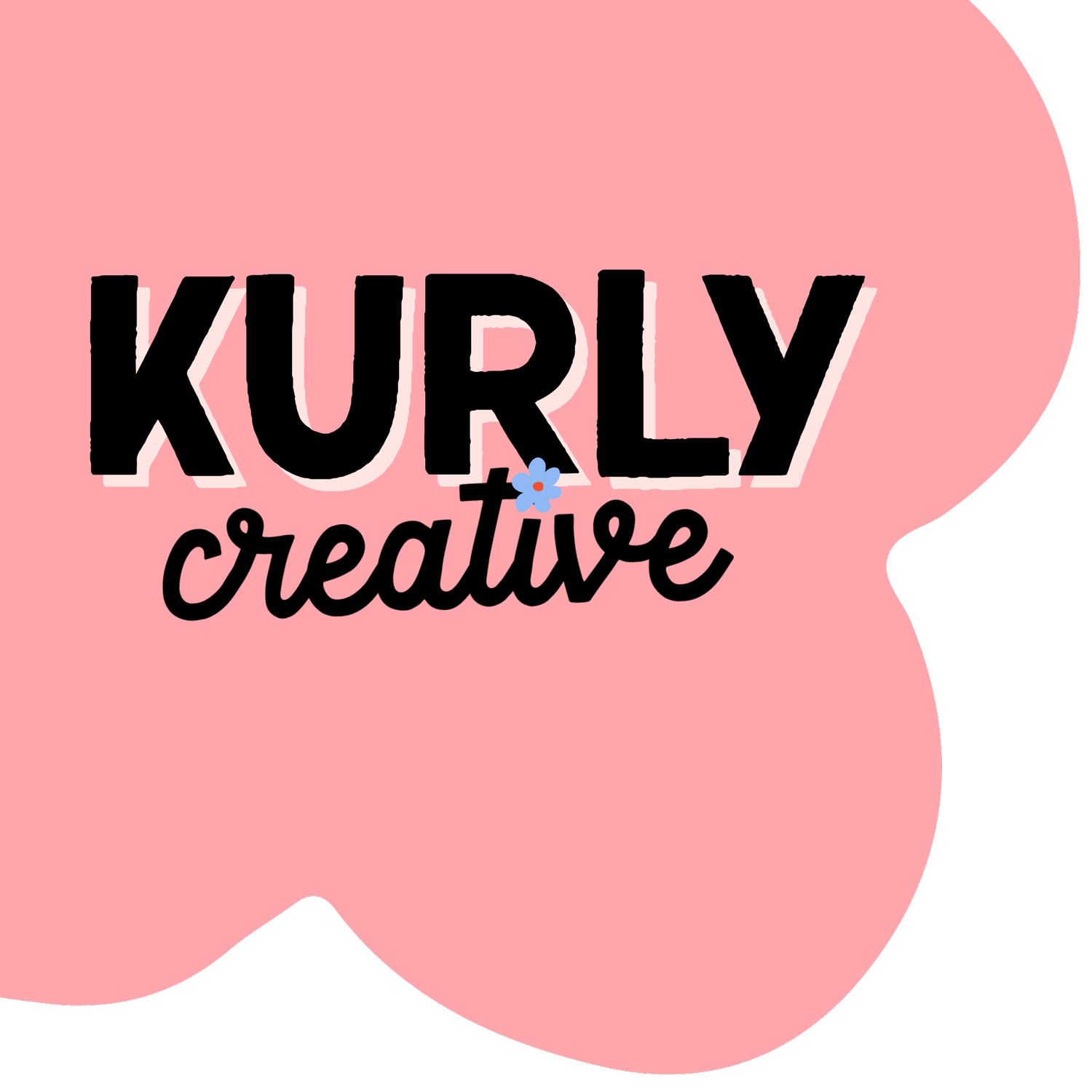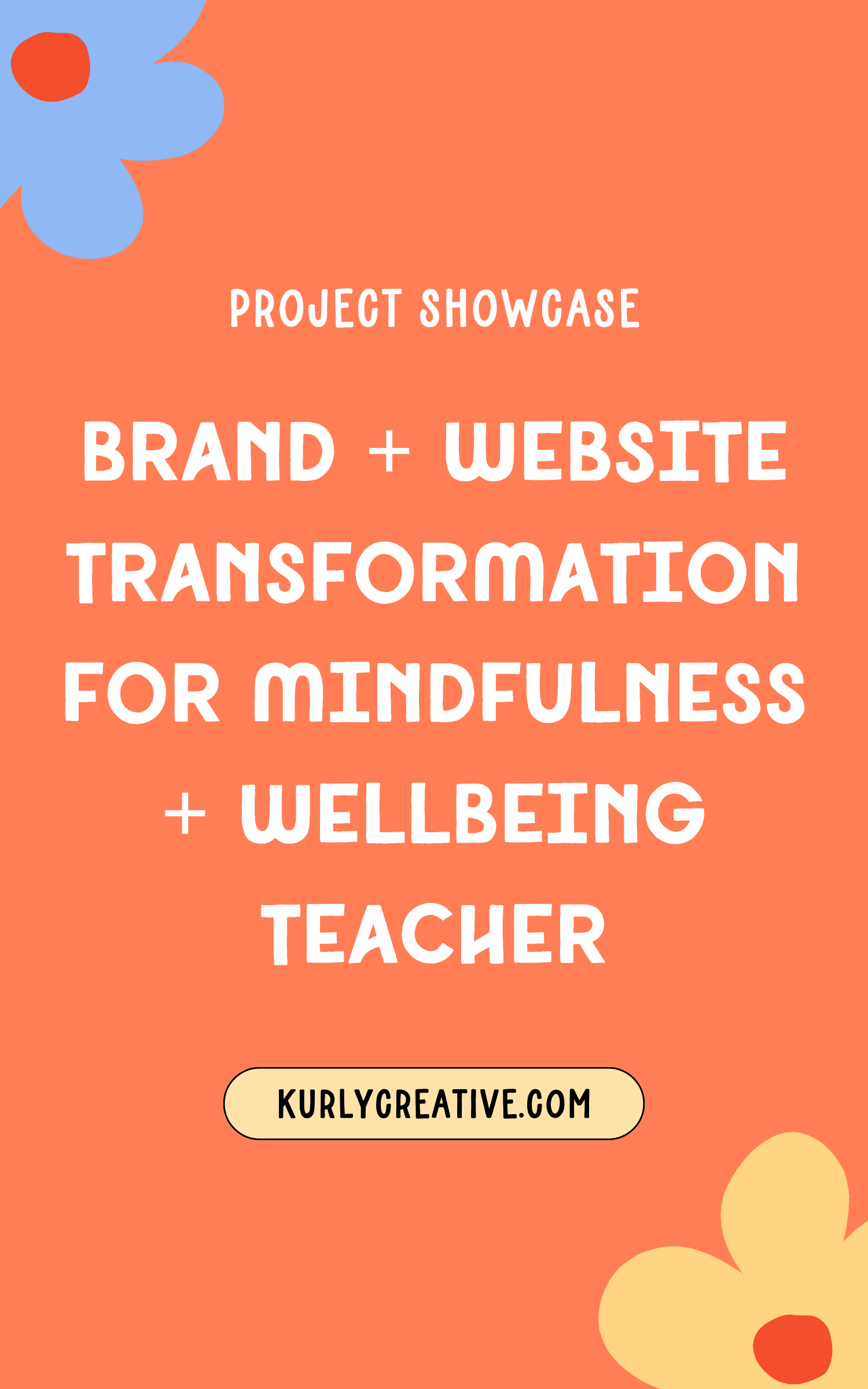Project showcase: Brand & website transformation for mindfulness & wellbeing teacher - Hanni Rose Mindfulness
In this post I’m going to be walking you through one of my recent brand & web design project clients - Hanni Rose Mindfulness.
Hannah came to me feeling a little lost and overwhelmed with how to market her mindfulness business to the right people. She’d originally diy’ed her website and was ready to invest in professional brand and website design to give her business more credibility.
She didn’t want to blend in with other brands in the wellness space and wanted to show her personality and get some clarity around her brand messaging.
After a few conversations and a strategy session, we established Hannah’s goals were to:
Get consistent, reliable bookings • Cultivate longer term relationships through repeat clients • Grow her reputation in the mindfulness & wellbeing space • Spend less time on marketing + more time on mindfulness!
So I got to work on creating a brand that would help her achieve all of these things!
It all starts with strategy…
I kicked off the strategy and research process by looking over all of Hannah’s answers from her brand and website workbook and her dream client questionnaire, taking note of any recurring words and themes. After going through this process, along with some industry research online, I ended up narrowing Hannah’s key themes to create her brand buzzwords:
Brand Buzz Words:
Supportive, Authentic, Friendly, Relatable, Compassionate, Empowering, Accessible, Uplifting, Simplistic
From looking at Hannahs Pinterest inspiration board, it was clear she was a big fan of some fresh, fun designs along with geometric shapes and themes of nature and adventure. This gave me some direction for creating a fresh, bright yet muted colour palette that gave a subtle nod to nature whilst not being too overly stereotypically minimal/nature-driven like so many other wellness websites are.
Using all of my research so far, I was able to create a simple, easy to digest brand strategy guidebook which listed out these key things for the Hanni Rose Mindfulness brand:
Business Goals
Business + Personal Values
Dream Clients personal values
The brand sweet spot (aka how the value of Hannah’s brand and her dream clients overlap)
Brand Buzzwords
Dream Clients Buzzwords
Brand Positioning (aka how Hanni Rose Mindfulness stands out)
Visual Moodboard
Colour Palette
I place a lot of focus, time and effort into getting to know my clients, understanding their lifestyles and biggest struggles, goals and values in their business and life. All of this information plays a key role in the strategy of the project and helps me create a brand that is truly tailored to them. Everyone has a different view of what success would look like to them. It’s not always just about money. In fact, it’s about so much more than that. So many of my clients come to me feeling overwhelmed and stuck, not feeling like they can move forward in their business and not having the direction or clarity to know where to place their marketing efforts and how to take their business to the next level. Hannah was no exception here. As there was so much foundational work and research put into the project before even reaching any form of tangible visuals - there was only one small adjustment needed to the colour palette. Other than that we were good to go!
The final brand moodboard ended up looking like this:
Dream Client Buzzwords:
Caring, Authentic, Compassionate, Ethical, Intentional, Seeks meaningful experiences
Now the strategy process was complete - I had a clear understanding of the direction Hannah’s brand needed to go in. I got to work on designing some fun, uplifting graphics taking inspiration from leaves, nature and geometric shapes.
I was conscious throughout the design process that Hannah wanted to walk away with some graphics that she could use herself when designing mindfulness class posters, and social media posts so I kept this in mind when creating her brand identity.
Website Strategy & Design
Next up - the website!! Before starting any website build and design, I always plan out a website strategy gameplan first. Hannah provided me with info on where most of her enquiries came from - this information plays a crucial part in planning out the structure on each page of a website, what CTAs or call to actions (CTAs are basically those little buttons and link that click through to other pages on a website!) to have on each page and how to structure her main menus and pages across her whole website.
Looking back over Hannah’s goals, I noticed that there was a key thing Hannah was missing from her current website which could really help her reach pretty much all of her goals - and that was a way to actually book and pay for any of her classes online. I researched different platforms we could use for this and found one that worked best for Hannah’s needs.
After lots of hard work, the final website ended up looking like this:
As there was so much foundational research, strategy and work put in at the beginning of the project, by the time it got to the design phase, I had a really clear understanding of what would work best for Hannah’s business. I also took some extra time to record guided video walkthroughs of the brand identity and website drafts as we went through the process that explained the meaning behind the designs so Hannah always felt educated and empowered when it came to giving any kind of feedback on the project. She knew exactly why I’d done the things I had - and the focus was always around her dream clients, brand strategy and business goals at all times. Due to all of these factors, I was able to wrap up the project with just a couple of very minimal revisions.
Now, I don’t say all this to brag - I’m saying it to emphasise the importance and value in strong, intentional brand strategy coupled with an in-depth discovery process, regular conversations with the client along with giving detailed, guided feedback on all design work so the client is educated at every stage of the process. When a design project is rooted with intention and strategy - you build clear foundations that the designer (moi) and the client are both delighted with! It makes the design process so much easier!
I like to think of it like this: if you went on holiday and were planning a few day trips - you wouldn’t just turn up and try to figure out how to get to those places - you’d probably go on Google maps, plan out your route so you have a better understanding of how to reach your destination, right?! The same goes for design. I’ve said it before, and I’ll say it again -
strategy is like the ingredients that make the cake, the pretty design stuff is like the icing and cherry on top!
I’ll finish this post with some kind words from Hannah after our project was finished.
“I was worried that working with a designer would feel 'salesy' and I’d feel pressure to make the project bigger or be taken in a direction I wasn't happy about. Kurly Creative was nothing like that.
Kate spent loads of time getting to know my business, my intentions and how it fits in with other aspects of my life. She checked in with me regularly and I felt I could be completely honest in my feedback throughout the process.
Kate really understood what was important to me and communicated it beautifully through the designs and images she created for me.”
“I loved how well Kate communicated with me about what she was doing and the reasons behind it. Not only did she present me with beautiful designs, she also created videos which talked me through the different aspects and the reasons behind them.”
“If you’re on the fence about working with Kurly Creative - do it! This project exceeded my expectations in every way. Not only did I get an amazing new brand and website, the process also helped me clarify my core values, what I want from my business and how to communicate that to potential clients. I feel really excited and motivated as a result of this project.”
Are you interest in working with me? Grab my free info pack below.
Did you like this post? Then pin it to Pinterest! 👇











